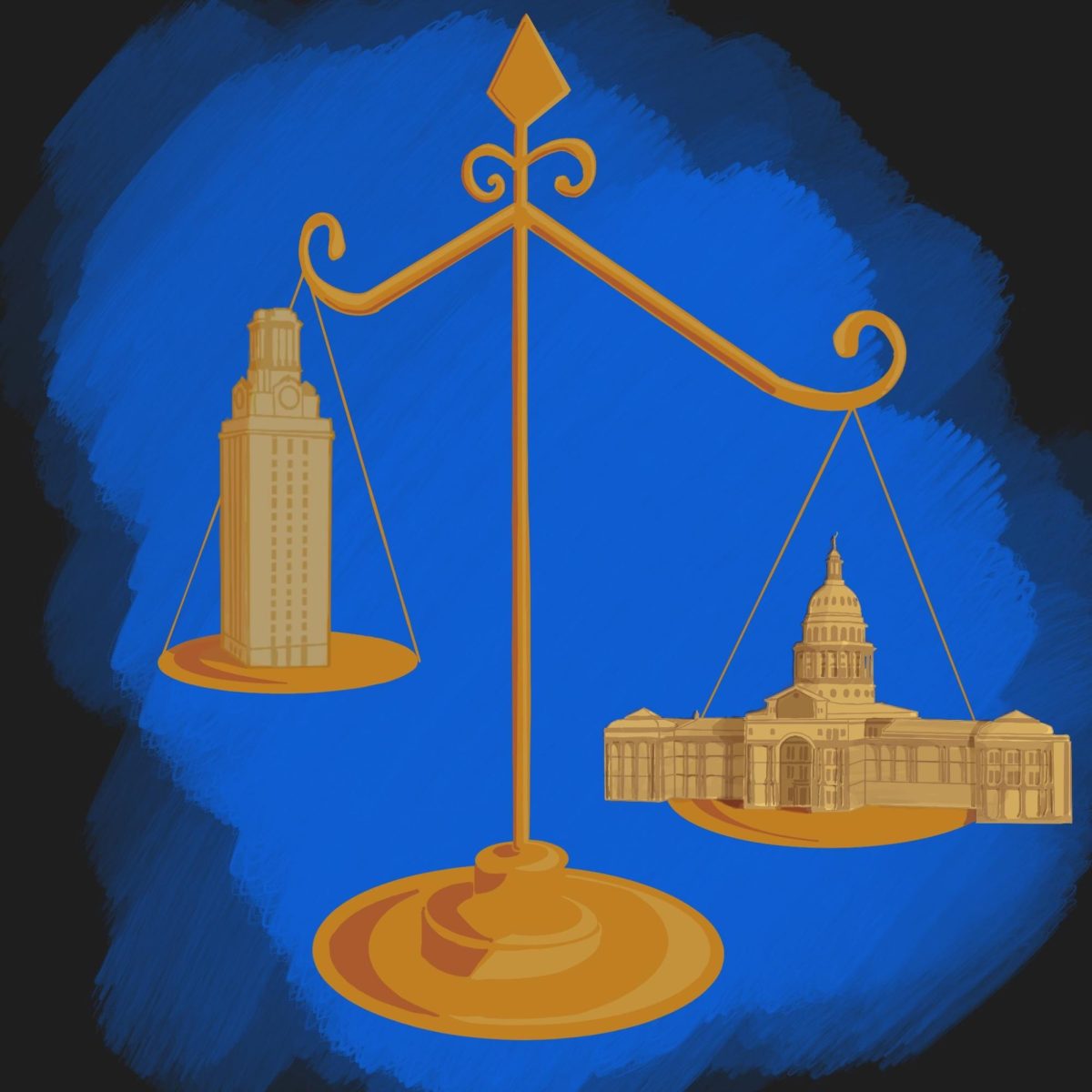The University faces countless hardships in the current economy — from budget cuts to hiring freezes and limiting pay increases — but intractable equity issues still linger in UT’s top-heavy salary payout.
UT’s core budget devotes half of its $758 million in salary money to the top 25 percent of its employees, whose pay ranges from $75,000 to $510,000. The top 300 employees, including chief administrators and faculty, earned a combined $67 million this year — the same amount earned by the 2,500 employees at the lowest end of the pay scale.
UT staff members said many are taking on more work as budget cuts eliminate positions across campus and that private companies offer tempting, similar jobs with higher pay for skilled workers. In the next legislative session, lawmakers will consider state leadership’s call for all state agencies, including UT — the largest employer in Austin — to reduce their budgets by 10 percent in the 2012-13 biennium.
Anwar Sounny-Slitine, a geography graduate student and a senior desktop support specialist, said even though his salary is well below his market value, he believes in the mission of the University and loves his job. Sounny-Slitine said he has seen the University from multiple angles after working several technology maintenance jobs and has learned that UT operates like a three-legged stool. Faculty, students and staff serve essential purposes, he said.
“We need all three legs in order for [the University] to stand, but the leg for staff is something that has been neglected,” Sounny-Slitine said.
He said staff members tend to settle for less compensation because they like working for UT, but after some time they build experience and skills, which can lead to better-paying jobs in the state and in the private market. According to Pay Scale, an organization that gathers salary information across the country, information technology specialists’ salaries range from $46,000 to $76,000 at technology service companies. At universities, the salary for the same positions range from $39,000 to $64,000.
“In the current economy, people are hanging onto their jobs, but in the past, it’s been a problem for some [University] positions because people have said, ‘I can’t deny making 20 or 30 percent more, I have to move on,’” he said.
UT chief financial officer Kevin Hegarty said the University would like to increase salaries and benefits, but the budget is currently too tight. He said the administration continues to evaluate its position in the market and that the current economic conditions indicate that other institutions are not increasing their competitive energy toward compensation.
“We don’t think we’re necessarily low or high on the market,” Hegarty said.
Like any institution with thousands of employees, salary sizes vary across departments and professions. Most salaries are paid for through the core academic budget, but head football coach Mack Brown’s $5.1 million guaranteed salary comes from the intercollegiate athletic department budget.
In the case of faculty, rank affects pay because universities distribute salaries competitively to retain their top faculty, said Faculty Council chairman Dean Neikirk, an electrical engineering professor.
“We have to be competitive in our salary offers with other highly ranked institutions,” Neikirk said. “If you aren’t competitive in what you can offer people, they won’t come here.”
At UT, full professors earn an average of $131,000, while assistant and associate professors earn an average of $85,000. In Neikirk’s Department of Electrical and Computer Engineering, the average pay for faculty is $96,000. In the Department of Classics, the average pay for faculty is $78,000.
Jennifer Ebbeler, an associate classics professor, said there are huge disparities between academic departments. Those in the sciences get paid more because of the option of working in the private sector, she said.
“I don’t think administrators are overpaid, but I think what it reflects is a corporate mentality that is reflected in any large university,” she said.
Ebbeler said given that the cost of living continues to rise, people are thinking about salaries more and more. She said she isn’t worried about putting food on the table or paying the mortgage, but in situations where she must put a new roof on her house or planning for retirement.
“I pretty regularly pick up extra teaching or do other things to get extra money, which then cuts into research time,” she said.
For other staff members at the University, budget cuts can mean larger workloads for the same amount of pay.
Daniel Berra, a library assistant, said the possibility of higher pay at other institutions draws talent away from UT. The upper administrators assume lower-level positions are easy to replace, but the costs of training new staff are higher than they think, Berra said.
“You’ll find more and more people who would be otherwise happy at their positions start looking around,” he said. “When UT loses staff, they have to pay to retrain people, and that costs the University a lot of money; it’s an expensive process. There’s definitely a need to keep people.”
Hegarty said the University tries to keep retraining costs down by giving preference to employees who may get laid off. Currently, however, there are no retraining costs as a result of budget cuts because those cuts are permanent, he said.
Hiring freezes and layoffs generally mean larger workloads because employees have to pick up the slack without extra pay, said Staff Council chairman Ben Bond.
“There’s a lot of staff members who are having to take on more work,” he said. “They’re filling one and a half or two jobs.”
Bond said money is also being taken out of employees’ paychecks as the price of insurance rises, especially if a staff member has a spouse or other dependents. He said the one-time merit pay increases, which will be effective in December, will ease some of the pain, but concerns linger.
“The one-time merit payment helps make up for some of that, but still, people’s monthly checks will go down somewhat,” he said. “It’s frustrating for a lot of people, including the administration of the University.”
— Additional reporting by Andrew Kreighbaum



















